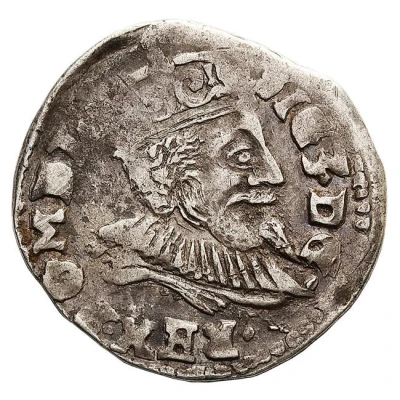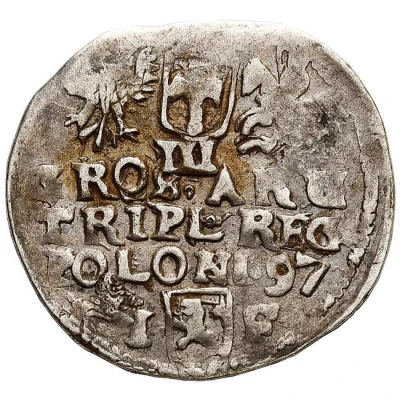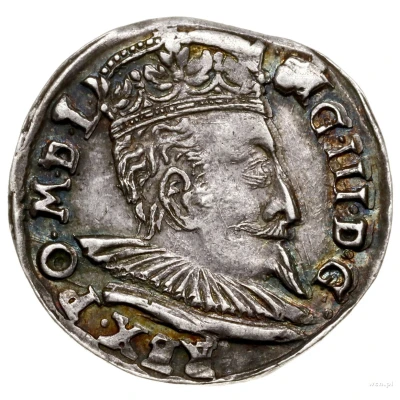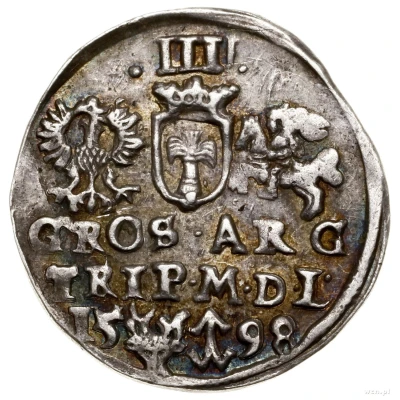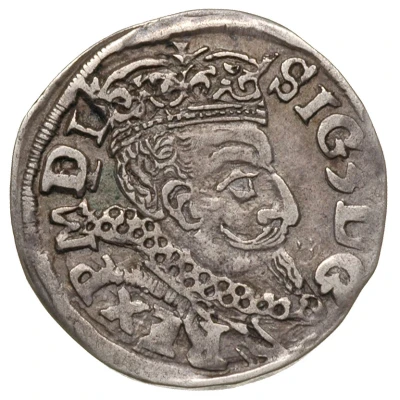
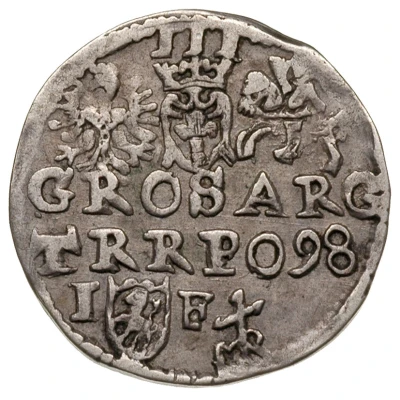

© Warszawskie Centrum Numizmatyczne s.j.
Trojak / 3 Grosze - Sigismund III Vasa Lublin; Lewart arms, IF, MR
| Silver (.844) | 2.37 g | 20 mm |
| Issuer | Polish–Lithuanian Commonwealth |
|---|---|
| King | Sigismund III Vasa (Zygmunt III Waza) (1587-1632) |
| Type | Standard circulation coin |
| Years | 1597-1598 |
| Value | 3 Groschens (Trojak) (0.1) |
| Currency | First Zloty (1573-1795) |
| Composition | Silver (.844) |
| Weight | 2.37 g |
| Diameter | 20 mm |
| Shape | Round (irregular) |
| Technique | Hammered |
| Demonetized | Yes |
| Updated | 2024-10-07 |
| Numista | N#124403 |
|---|---|
| Rarity index | 97% |
Reverse
Two line inscription with date at end of second line. Above, value in Roman numerals above Polish eagle, Wasa arms and Lithuanian rider. Below, Lewart arms divides IF, MR monogram at right.
Script: Latin
Lettering:
III
GROS ARG
TR RPO 98
I(_)F MR (monogram)
Unabridged legend: Grossus argenteum triplex regni Poloniae
Translation: Silver three grossus of the Kingdom of Poland
Comment
Mint: Lublin - لوبلين - Lublinum - לובלין - Liublinas - ルブリン - Люблин - 卢布林The main Lublin subtypes and dates are grouped in the catalog according to the arms, initials and mintmark at the bottom of the reverse.
The minor variants for each date are described below.
Iger L.97.23 Reverse, Lewart arms divide IF and MR monogram in shield at right divides two-digit date
© Poznanski Dom Aukcyny
Iger L.97.24 Reverse, two digit date at end of legend. Below, Lewart arms divide IF and MR monogram in shield at right
© Warszawskie Centrum Numizmatyczny
Iger L.97.25 As for L.97.24, but MR monogram not in shield (same as main photos, but (15)97).
Iger L.98.1a
Interesting fact
One interesting fact about this coin is that it features the image of King Sigismund III Vasa, who was the last king of Poland to be crowned with the traditional coronation ceremony, which included the use of a golden crown and a scepter. This coin was minted during his reign, which lasted from 1587 to 1632.
